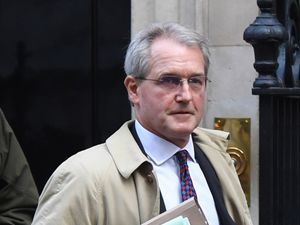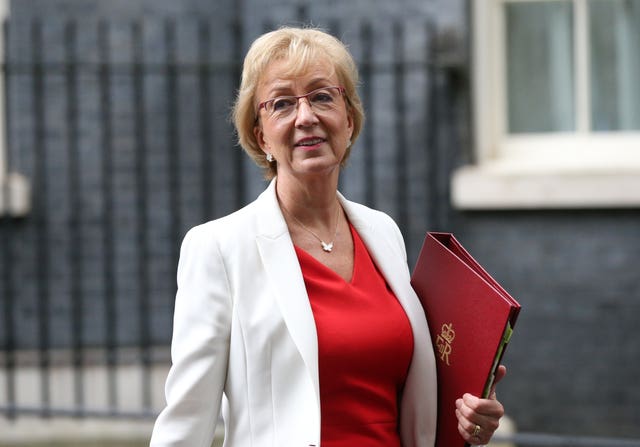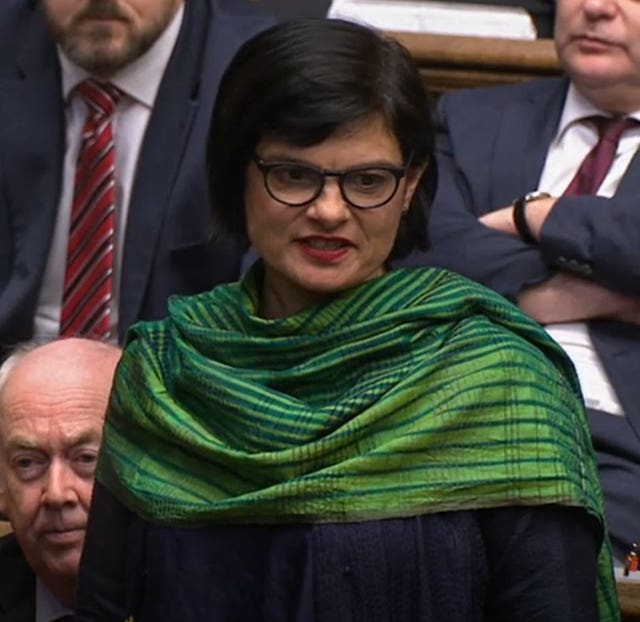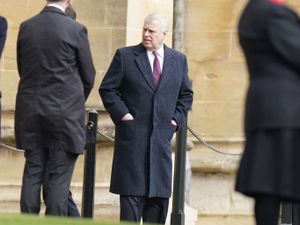Johnson backs standards process overhaul ahead of vote on Paterson suspension
The Commons is to vote on whether Conservative Owen Paterson should be barred from Parliament for six weeks.

Boris Johnson has backed an overhaul of the disciplinary process for MPs as Tories try to prevent the suspension of a colleague found to have committed an “egregious” breach of lobbying rules.
Conservative MPs have been ordered by the Government to vote for an amendment seeking to reform the Commons standards system and send Conservative former minister Owen Paterson’s case for a review.
They will vote on Wednesday afternoon on whether to approve a six-week ban from Parliament for the North Shropshire MP after an investigation by the Standards Commissioner found he repeatedly lobbied ministers and officials for two companies paying him more than £100,000 per year.

Conservative MPs outraged by the decision are attempting to block the suspension recommended by the Commons Standards Committee in what would be an unprecedented move in the post-war era.
Tories have been told there is a three-line whip to support Dame Andrea Leadsom’s amendment calling for an overhaul of the disciplinary process and a review of Mr Paterson’s case, a senior Conservative told the PA news agency.
During Prime Minister’s Questions, deputy Labour leader Angela Rayner said that “in no other profession” could workers have their “mates vote them back into the job” after a ruling from an independent investigator.
Mr Johnson said paid lobbying in the Commons “is wrong” and that MPs “who are found guilty of that should apologise and pay the necessary penalties”.
“But that is not the issue in this case or this vote that is before us,” he said during Prime Minister’s Questions.
“The issue in this case, which involved a serious family tragedy, is whether a member of this House had a fair opportunity to make representations in this case and whether, as a matter of natural justice, our procedures in this house allow for proper appeal.”
Ms Rayner, standing in for Sir Keir Starmer after he had a positive coronavirus test, accused the Conservatives of “wallowing in sleaze”.
“If it was a police officer, a teacher, a doctor, we would expect the independent process to be followed and not changed after the verdict – it’s one rule for them and one rule for the rest of us,” she added.
Opening the debate on the suspension, Commons Leader Jacob Rees-Mogg backed the amendment and told MPs their concerns over the standards process are “too numerous to ignore”.
But some Conservatives said they will oppose the amendment, including the longest-serving MP Sir Peter Bottomley.
He said: “We chose the system we are now using. If we want to consider changing it, we do it in a proper way instead of considering it in the way we are now.”
Downing Street earlier urged MPs to seek “cross-party agreement on a new appeals process” as Commons Speaker Sir Lindsay Hoyle selected the amendment tabled by Dame Andrea.
A Number 10 spokeswoman said: “As in any normal workplace and all walks of life, people should be entitled to the right to appeal. This is sacrosanct in providing fairness and natural justice, and ensuring there is an opportunity to check due process and that the right procedures were followed.
“Therefore the Commons should seek cross-party agreement on a new appeals process whereby the conclusions of the Standards Committee and the commissioner can be looked at. This could include judicial and lay member representation on the appeals panel.”
The Prime Minister’s press secretary insisted “this isn’t about one individual case and we’re not having a view on the ruling or looking to overturn the ruling” despite the amendment specifically naming Mr Paterson.
She insisted the Paterson case had “crystallised” the demand for reform, saying it had been “long standing” among MPs, but declined to say why changes had not been introduced earlier.
“It’s absolutely not a case of MPs marking their own homework. This is about setting up a separate appeals process to strengthen the system,” the spokeswoman added.
Bernard Jenkin, a senior Tory MP backing the Leadsom amendment, admitted the move “looks terrible” but insisted there is “no alternative”.

“We’re not letting Owen Paterson off, we’re not exonerating him, we’re not condoning him, we’re going to put his case in front of a proper judicial-style panel where there can be a proper hearing and proper cross-examination of witnesses and natural justice,” he told BBC Radio 4’s Today programme.
Daniel Bruce, chief executive of anti-corruption group Transparency International UK, said the amendment will set a “terrible precedent” that will “only reinforce the perception that politicians play by a different set of rules”.
Parliamentary Commissioner for Standards Kathryn Stone recommended Mr Paterson should be banned from the Commons for 30 sitting days.
Ms Stone’s investigation found he repeatedly lobbied on behalf of two companies for which he was acting as a paid consultant – Randox and Lynn’s Country Foods.

Mr Paterson has angrily disputed her findings, claiming the investigation was unfairly conducted, and he argued that the manner in which the investigation was carried out had “undoubtedly” played a “major role” in the decision of his wife Rose to take her own life last year.
Recall proceedings could be triggered if the Commons backs the committee’s recommendations, and would result in a by-election if 10% of constituents in the North Shropshire seat sign a petition demanding one.
Under Dame Andrea’s proposals, MPs on a Conservative-majority committee led by former culture secretary John Whittingdale would examine whether the standards system should mirror that of investigations of misconduct in other workplaces, including the right of representation, the examination of witnesses, and the right of appeal.
It would also look into whether Mr Paterson’s case specifically should be reviewed.
The Commons Standards Committee backed Ms Stone’s findings and said that the MP’s actions were “an egregious case of paid advocacy”.





